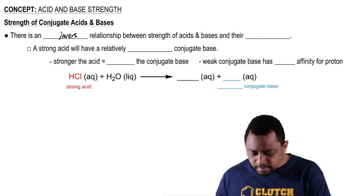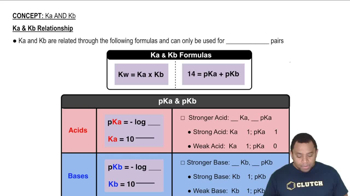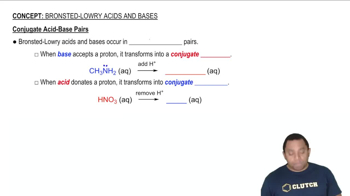Textbook Question
Indicate whether each of the following statements is correct or incorrect. (d) K+ ion is acidic in water because it causes hydrating water molecules to become more acidic.

 Verified step by step guidance
Verified step by step guidance



Indicate whether each of the following statements is correct or incorrect. (d) K+ ion is acidic in water because it causes hydrating water molecules to become more acidic.
A solution is made by adding 0.300 g Ca1OH221s2, 50.0 mL of 1.40 M HNO3, and enough water to make a final volume of 75.0 mL. Assuming that all of the solid dissolves, what is the pH of the final solution?
Predict how each molecule or ion would act, in the Brønsted-Lowry sense, in aqueous solution by writing 'acid,' 'base,' 'both,' or 'neither' on the line provided. (b) Prozac
Calculate the pH of a solution made by adding 2.50 g of lithium oxide 1Li2O2 to enough water to make 1.500 L of solution.